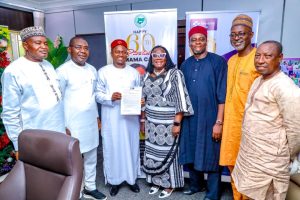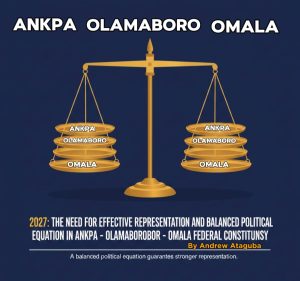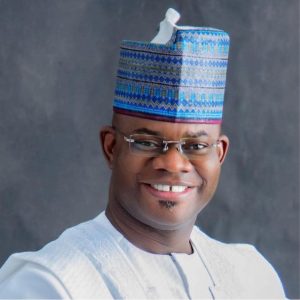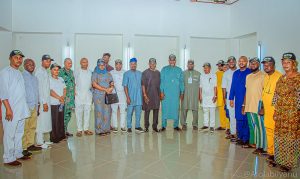Echocho, Acharu Oil Mill and Other Stories – By Haruspice

People never questioned Senator Jibrin Isah Echocho’s capacity, ability or strong optimism that he would bring smiles to the faces of the industrious and peaceful people of Kogi East when he was elected to represent them in the Upper Legislative Chamber three years ago. His humanitarian and philanthropic efforts were highly documented and praised by Igala people prior to his historic ascent to the sacred chamber. Numerous qualified unemployed Igala youths found lucrative employment through Echocho. Thus, the election of this reserved and devout personality to the National Assembly provided him with a larger platform to engage in the activities for which he is well known: mingling, forging strong bonds, and empowering the ordinary people.
Alhaji Jibrin Isah Echocho is not your typical senator in terms of his legislative record; he has sponsored a number of bills, all of which are in various stages of becoming laws. Some of these Bills include those for the establishment of the Federal Eye Center in Ochadamu, the Orthopaedic Hospital in Dekina, the Federal University of Education, the Nigerian Cashew Crop Processing Agency, and the Nigerian Capital Market Development Fund. He has also sponsored a Bill for the upgrade of the College of Education in Ankpa to become a federal university of education. It should be noted that the time and duration required for a Bill to proceed from first reading to third reading, depends on a variety of circumstances, and some Bills take a long time to become law. Senator Jibrin Isah Echocho’s sponsored bills are on the verge of becoming law.

It is well known that members of the National Assembly in Nigeria, like Echocho, face numerous difficulties and pressure from constituents who primarily seek for individual and group demands. Consequently, their riches, power, and influence are legitimately overestimated.
This explains why society puts tremendous strain almost to the point of breaking on them. Most often, the average person equates a legislator’s job with that of an executive. But, would you hold them responsible for such a flawed idea? Is it not true that in Nigeria, people engage in politics as a way to get their wants met personally and to have their problems solved? As a result, if a member of the national assembly does not have a long list of constituency projects, even though they have excelled in their core duty of enacting and amending laws, they will be viewed as a lawmaker with appalling performance.
Until recently, there was little evidence in many Nigerian states, particularly in Kogi East, that the end users of the half of the constituency allowances paid to members of parliament actually received those funds. Echocho has succeeded in showing the rest of the world that a senator can be successful in both the legislative and constituency spheres.
There are records of his constituency projects scattered around Kogi East. From Idah to Ankpa, Olamaboro to Dekina, Egume to Abejukolo, there are proofs that Echocho has been working magic with his constituency allowance. One of such constituency projects, is the resuscitation of the Acharu Oil Mill, a federal government project which had been abandoned for over three decades.
Reviving the Acharu Oil Mill, a massive oil mill that is currently changing the economic landscape of Kogi East, is one indication that the technocrat politician with a background in business is succeeding. During the 1950s and 1960s, Kogi State was a significant producer and exporter of palm oil and palm kernels. Pyramids made of palm kernels were present at that time in the John Holt Warehouses in Idah. In addition, Idah River Port loaded palm kernels every year for shipment to Europe via Delta Inland Port of Burutu.
Palm Oil Mill was therefore established in Acharu through Nigeria Institute for Oil-palm Research (NIFOR) in order to add impetus to the flourishing palm oil industry in Kogi State. Primarily, NIFOR was to step up the experiment on palm oil products and to develop a robust, useful, and sustainable palm oil output for the country. Regrettably, the Acharu Oil Mill in Egume, Kogi State, was not only abandoned, it was left to decay until the high-flying Senator came to rescue it.
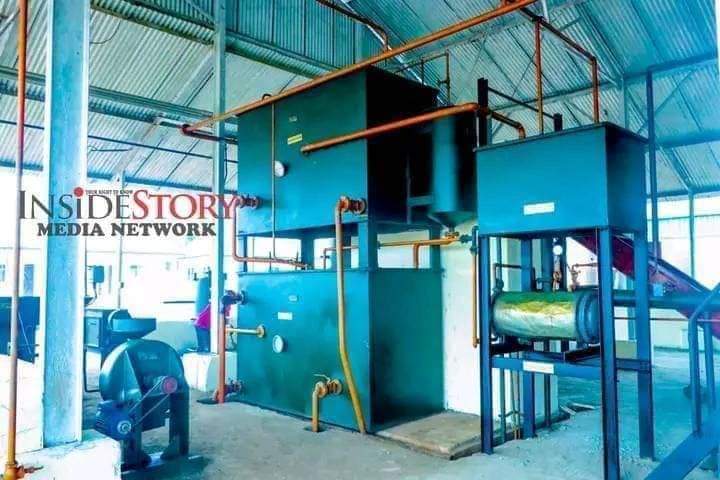
Today, the Acharu Oil Mill is wearing a new face, has new milling and processing equipment and is now active after lying idle for a very long time. The factory now provides job opportunity to both men and women, young and old. The primary plantation and factory of the mill, has equally taken the lead in the state’s palm oil production. There is no question that the mill will produce enough palm oil for local use. In order to meet the installed capacity of the Oil Mill, government needs to encourage people to grow palm trees in their residences and on vacant land. The mill will also supply raw materials for local palm tree-based soap, baskets, brooms, and other secondary products like palm cake. There is undoubtedly a rise in economic activity in Acharu as a result of the Oil Mill.
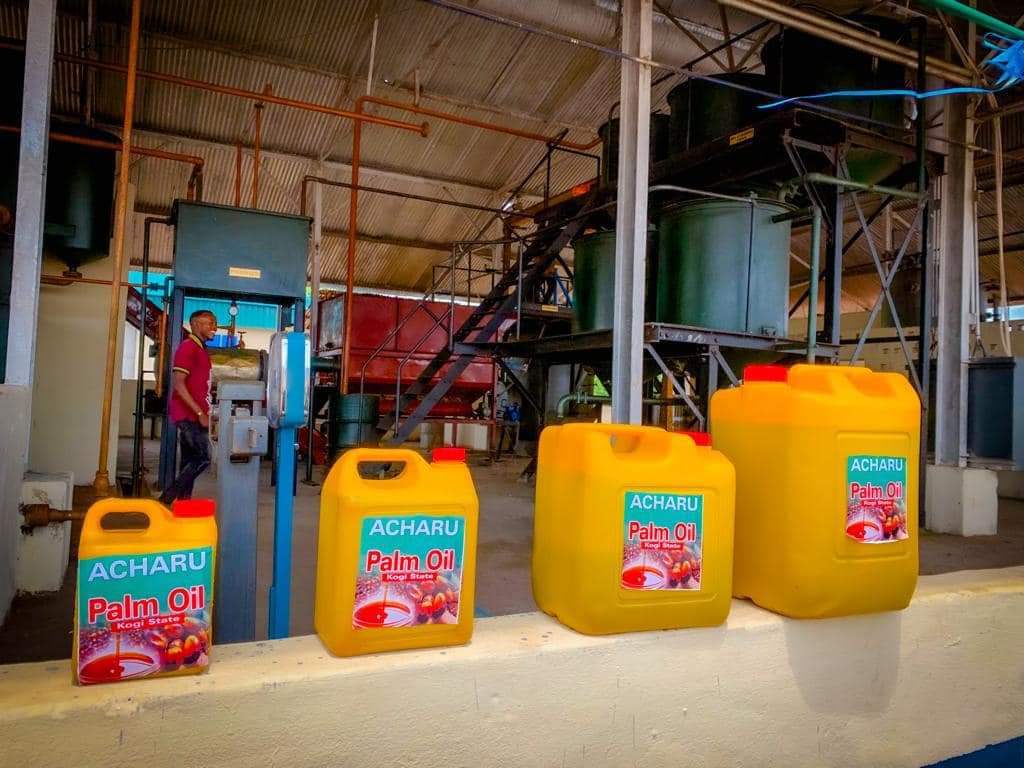
The oil mill in Acharu is a good illustration of what can be accomplished when political will and dedication to service are combined. Only an Echocho can perform such magic.

